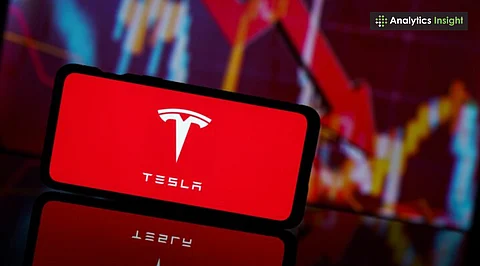

Tesla lost Rs 6.6 lakh crore in market cap post Musk’s political move.
Consumer sentiment is shifting as Tesla becomes politically polarizing.
Investors and pension funds are pushing for tighter boardroom control.
Tesla has long been considered a leader in innovation, combining engineering excellence with environmentally conscious intentions. However, recent developments have put that reputation at risk. In the past few weeks, Tesla's status as a nonpartisan innovator has started to falter as CEO Elon Musk delves deeper into politics by founding his political party, the 'America Party.'
This move has caused market unrest and alienated segments of Tesla's core customer base, putting the company at risk of protests and criticism. Investors are becoming increasingly anxious, and consumers are beginning to question their loyalty. Many are doubting Tesla’s credibility as Musk’s political ambitions continue to gain momentum.
Tesla’s share price experienced a sharp decline, dropping over 8% within days of Musk’s political announcement. This resulted in a loss of more than Rs. 6.6 lakh crore ($80 billion) from the company’s market capitalization.
Investors and analysts quickly raised concerns, viewing Musk’s political ambitions as a distraction at a time when Tesla faces significant challenges in the electric vehicle market and is behind schedule on promised innovations such as full autonomy and robotaxis. Dan Ives of Wedbush Securities remarked, “Shareholders didn’t sign up to bankroll a political movement. This is a governance stress test.”
Also Read: Elon Musk's Grok AI to Launch Text-to-Video Generator this October
Elon Musk has introduced a new political party called the America Party, which is intended as a centrist alternative to what he describes as a dysfunctional two-party system. However, the idea has not gained traction in an already polarized American political landscape. Both Democrats and Republicans have been hesitant to embrace it, and political strategists suggest that Musk has effectively alienated himself from both sides.
This situation poses a risk for Tesla, which relies heavily on favorable regulations, subsidies, and positive investor sentiment. As a result, the company may lose the bipartisan goodwill it previously enjoyed. This shift is being noticed in the policy-making circles of Washington, where support for green incentives often hangs in a delicate balance due to ideological divides.
Main Street is also noticing changes. Tesla’s customer base, which was once primarily made up of liberal, environmentally conscious consumers, is beginning to shift.
A June survey conducted by Morning Consult revealed that Democrats' favorability for Tesla dropped from 23% to just 13%, while Republican approval rose from 15% to 26%.
This shift is not necessarily a victory for the company. Although some conservative consumers are showing interest in Tesla for the first time, loyal customers are starting to leave. As Mumbai-based electric vehicle analyst Natasha Kohli pointed out, “People don’t want their car to be a political statement.”
Consumer frustration has intensified and transformed into organized discontent. Protests led by activists have erupted in multiple cities, with the so-called ‘Tesla Takedown’ campaign gaining traction globally, from Los Angeles to Bengaluru.
Incidents of vandalism at showrooms and coordinated calls for boycotts have surged. The backlash is growing; in Quebec, Tesla sales plummeted by 87% year-over-year, while Europe experienced a 49% decline.
Pension funds with investments totaling Rs. 23,000 crore have also faced criticism for their governance. It has been alleged that the board has failed to manage Elon Musk’s political controversies effectively, prompting demands for stronger governance measures.
Also Read: Elon Musk's Tesla Loses $984.73 Billion in Market Cap: What's Next?
Tesla’s board, chaired by Robyn Denholm, is being called upon to take action. Shareholder groups have called for:
Increased extension of Musk’s equity holding to align interests.
Establishment of a special monitoring committee on political activities.
Leadership overhaul to protect Tesla from Musk’s agendas.
To date, the board has been low-key, but insiders indicate that it is now getting heated. Lead investors are ready to cast their ballots on possible reforms at the next AGM.
The fate of Tesla’s share price hinges on its ability to distance itself from Elon Musk's political activities. Many investors are watching to see if the tech giant will embrace a reputation as a partisan brand in an increasingly polarized world.
Teslas’ trajectory has shifted from a symbol of climate innovation to a focal point of political controversy. Once celebrated by a diverse audience, the company risks becoming a reflection of ideology. If the board does not intervene soon, Tesla could suffer more than just a decline in market capitalization; it could lose the widespread appeal that made it a leader in the industry.
In today’s age of political branding, no company focused on technological innovation can remain neutral. Tesla may become a leading example of this trend.
